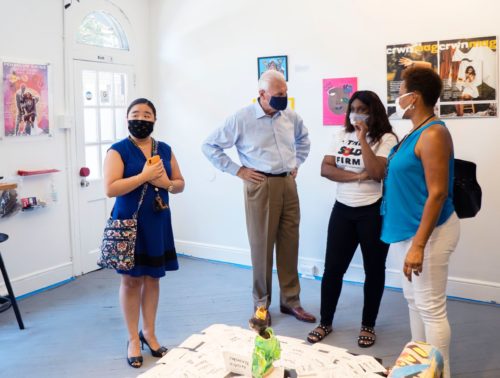Alex’s Lemonade Stand Foundation (ALSF), a nonprofit working to raise funds for pediatric cancer research, received a $100,000 donation from the Hayman Foundation to back the work of its Childhood Cancer Data Lab (CCDL).
First created in 2017, the lab’s goal is to ease access to publicly available data on pediatric cancer. Through a free online tool called refine.bio, the organization puts data from sources like the National Institutes of Health into a single format, which helps researchers efficiently analyze it in the hopes of identifying patterns.
“The data refinery, refine.bio, is now processing data that initially cost $2 million to generate every hour, making it available to cancer researchers everywhere,” said Casey Greene, director of the CCDL.
The donation from the California-based foundation is in tune with ALSF’s mission: filling the gaps in funding towards pediatric cancer research, this time through a coalition of data scientists, researchers and computer engineers. Known for its grassroots approach to fundraising, the 13-year-old Bala Cynwyd-based nonprofit has funded some 800 pediatric cancer research projects. The organization was founded by Jay and Liz Scott, the parents of cancer patient Alexandra “Alex” Scott, who died in 2004.
The lab, a team of seven based in Center City, was first launched in 2017. Thus far, it has processed over 150,000+ childhood cancer data samples made available to researchers like Dr. Stephen Mack from Houston-based Baylor College of Medicine.
“Having more data in one place and being able to access it the same way as anyone else and being able to work with that data and our collaborators is an important aspect that will advance research,” the researcher said.
Over the summer, ALSF released a landmark data set that included the genomic sequencing of 25 unique pediatric cancer types, in partnership with the National Cancer Institute-backed Pediatric Preclinical Testing Consortium. Dr. John Maris, a CHOP pediatric oncologist who sits on ALSF’s Scientific Advisory Board, called the release “momentous,” and said the information would “overcome some major problems we have when treating childhood cancer.”
Before you go...
Please consider supporting Technical.ly to keep our independent journalism strong. Unlike most business-focused media outlets, we don’t have a paywall. Instead, we count on your personal and organizational support.
3 ways to support our work:- Contribute to the Journalism Fund. Charitable giving ensures our information remains free and accessible for residents to discover workforce programs and entrepreneurship pathways. This includes philanthropic grants and individual tax-deductible donations from readers like you.
- Use our Preferred Partners. Our directory of vetted providers offers high-quality recommendations for services our readers need, and each referral supports our journalism.
- Use our services. If you need entrepreneurs and tech leaders to buy your services, are seeking technologists to hire or want more professionals to know about your ecosystem, Technical.ly has the biggest and most engaged audience in the mid-Atlantic. We help companies tell their stories and answer big questions to meet and serve our community.
Join our growing Slack community
Join 5,000 tech professionals and entrepreneurs in our community Slack today!

The person charged in the UnitedHealthcare CEO shooting had a ton of tech connections

From rejection to innovation: How I built a tool to beat AI hiring algorithms at their own game

Where are the country’s most vibrant tech and startup communities?


